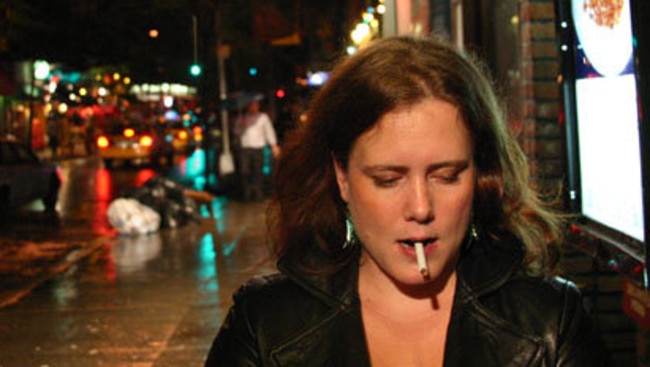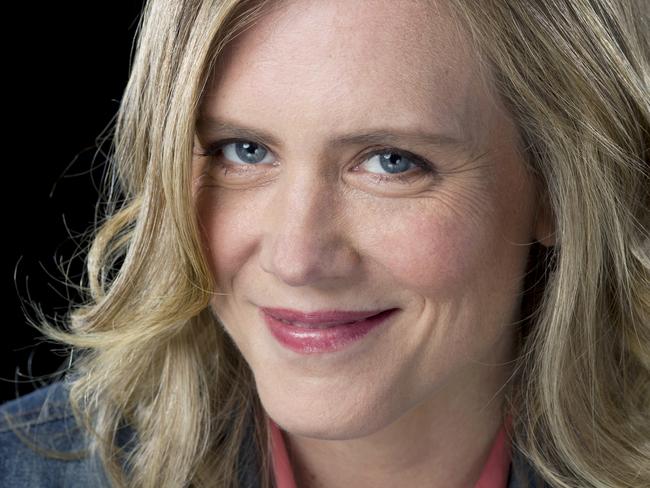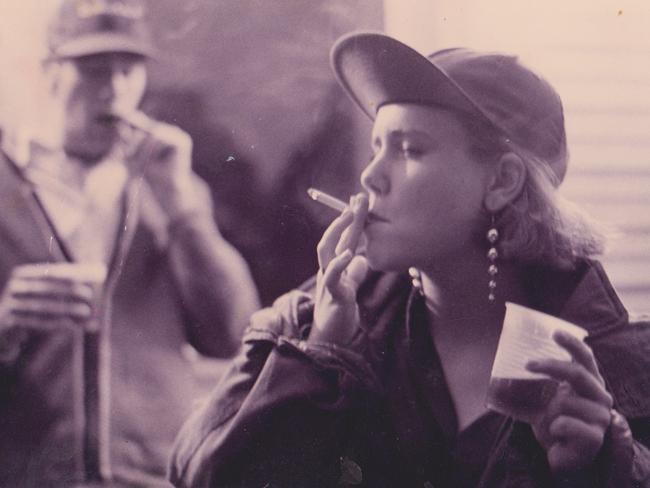Blackout: Coming out of the fog in the middle of sex with a stranger
WHEN Sarah Hepola came back to reality in the middle of having a sex with a stranger, she resolved to give up alcohol. The next day, she had a drink.

Entertainment
Don't miss out on the headlines from Entertainment. Followed categories will be added to My News.
WHEN the fog lifted, Sarah Hepola found herself having sex with a man she didn’t recognise.
She’d had alcohol blackouts before, of course, but she usually didn’t come to until the morning, the final hours of the night neatly wiped from her memory.
This time, when the lights came flooding on, she was in bed with a stranger in a strange room, and had no idea how she had got there. “It was the freakiest thing,” she told news.com.au. “My body was living this story my mind hadn’t caught up with.”
Later that night, crying with shame, she resolved to stop drinking. But it wasn’t that simple.
She had a drink the very next day, and it took her three more years to give up alcohol.
Now she has written a book about her twisted relationship with the demon drink, and the way Western culture celebrates boozing. It’s an unflinching account that will ring uncomfortably true for many young women.
Writing the memoir helped fill a void in her life that alcohol had once inhabited. “I had quit drinking and my life was over,” she told news.com.au. “It was all I knew. You nervously search around the room for what to do.”
The New York Times bestseller, Blackout: Remembering the Things I Drank to Forget, is at heart a brutally honest look at blackouts, which Sarah suffered for 25 years.
“There’s a lot of confusion between blackouts and passing out. A person in a blackout is walking and talking.” What has happened, Sarah has been educating the world, is that their blood alcohol concentration has reached a level that causes the long-term memory to shut down — explaining why a drunk person often constantly repeats themselves.

For Sarah, and many of her peers living in New York, blackouts were normal. Everyone drank to get drunk — in college, in their 20s and even into their 30s. “There was this funny complicity, we all embarrassed ourselves. ‘You vomited this night, I blacked out.’”
As a woman, Sarah says, this was even more pronounced. Drinking was seen as a form of feminism, representing female freedom to be strong, powerful and have sexual escapades. It can make the issue of consent “very murky” at times.
“Early in my sobriety, I picked up a book about how women were embarrassed by how much they drank and had few social opportunities to do so,” said Sarah. “I thought, ‘No!’
“The way women drank had really changed in the past 20 years. There was shift in cultural norms. Drinking like men was something to be proud of, it was the social glue that kept female friends together.”
Regret had a short shelf life. “A few days pass and you think you’ve been too dramatic, you tell a friend and it becomes a funny story, it becomes currency.
“As a single woman — or just a young person — you want stories with twists and turns, you dine out on that. You become the hero of your own life, editing stories for cocktail parties and becoming the Bridget Jones or the Carrie Bradshaw of the story. It takes so much sting out of it.”
But as Sarah moved into her mid-30s, it was hard to ignore the red flags. She was $60,000 in debt, 20 kilos overweight, she had an ulcer and her knee hurt when she walked downstairs. “My body was saying, this is unmanageable.”
And after years of not letting it affect her work as a writer and editor, she was starting to miss deadlines, and come in late smelling of booze.

“I wasn’t functioning so well,” she said. “There are all these spinning plates you have to keep going when you have this crazy life. My friends were giving me signals it wasn't OK. You might think your drinking is normal, but other people don’t think so.”
There are many different signs people are alcoholics, she says, but fundamentally, it’s when you want to stop but you can’t, she adds.
She tried all kinds of things to avoid “the cult” of Alcoholics Anonymous: cutting down on drinking, yoga, therapy. Eventually, she gave in. “You have to be really broken,” she said. “It meant the end to drinking, which I didn’t want. It was, ‘anything but that!’ But nothing stuck until AA.”
Sarah, who now lives in Dallas, Texas, doesn’t think everyone needs to give up alcohol completely, but she thinks it’s important for us to look at our relationship with alcohol and think about why we need it so much.
“Every girl I knew had to drink before a date, or before having sex with someone for the first time. Why? Why do we need alcohol to tell each other how we feel? Drinking isn’t the glue that keeps women together, it’s talking, and authentic communication.”
Sober for five years, she’s been through some hard conversations, slowly repaired friendships and learned to be honest with herself. Now she is direct about what she wants, but knows that doesn’t necessarily mean having it all, all the time.
There are many reasons alcohol is the fuel of Western society. We drink to feel less alone, to feel confident and happy. For many women, it’s wrapped up with gender issues such as body consciousness, sex and “feeling small in the world”, adds Sarah.
“There’s this impossible struggle between being nice to everyone and fighting for yourself. I was an inveterate people-pleaser. I didn’t realise how much pain I was swallowing.
“Alcohol gets you halfway but not the whole way. Eventually, it starts working against itself.”
Originally published as Blackout: Coming out of the fog in the middle of sex with a stranger


